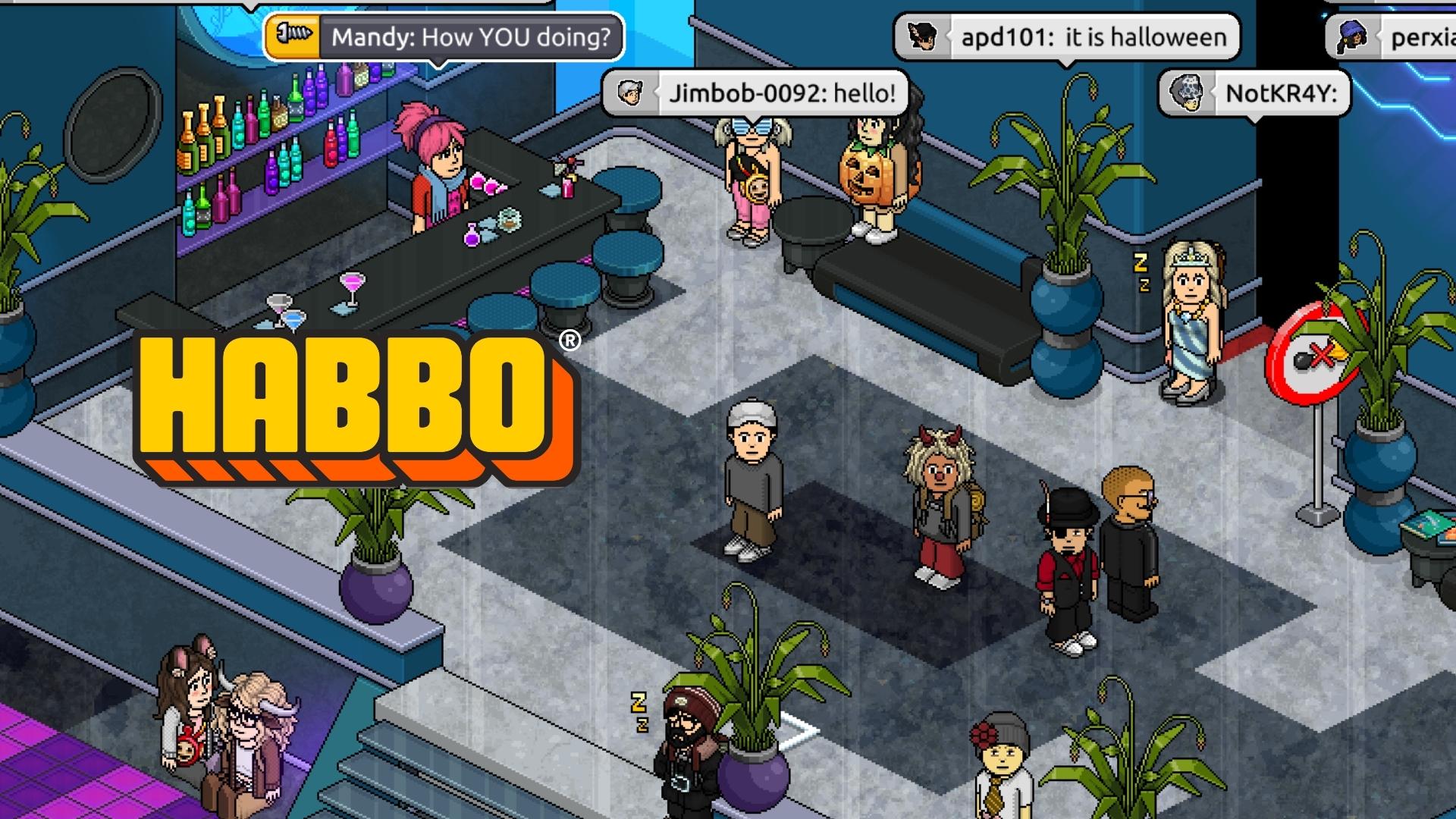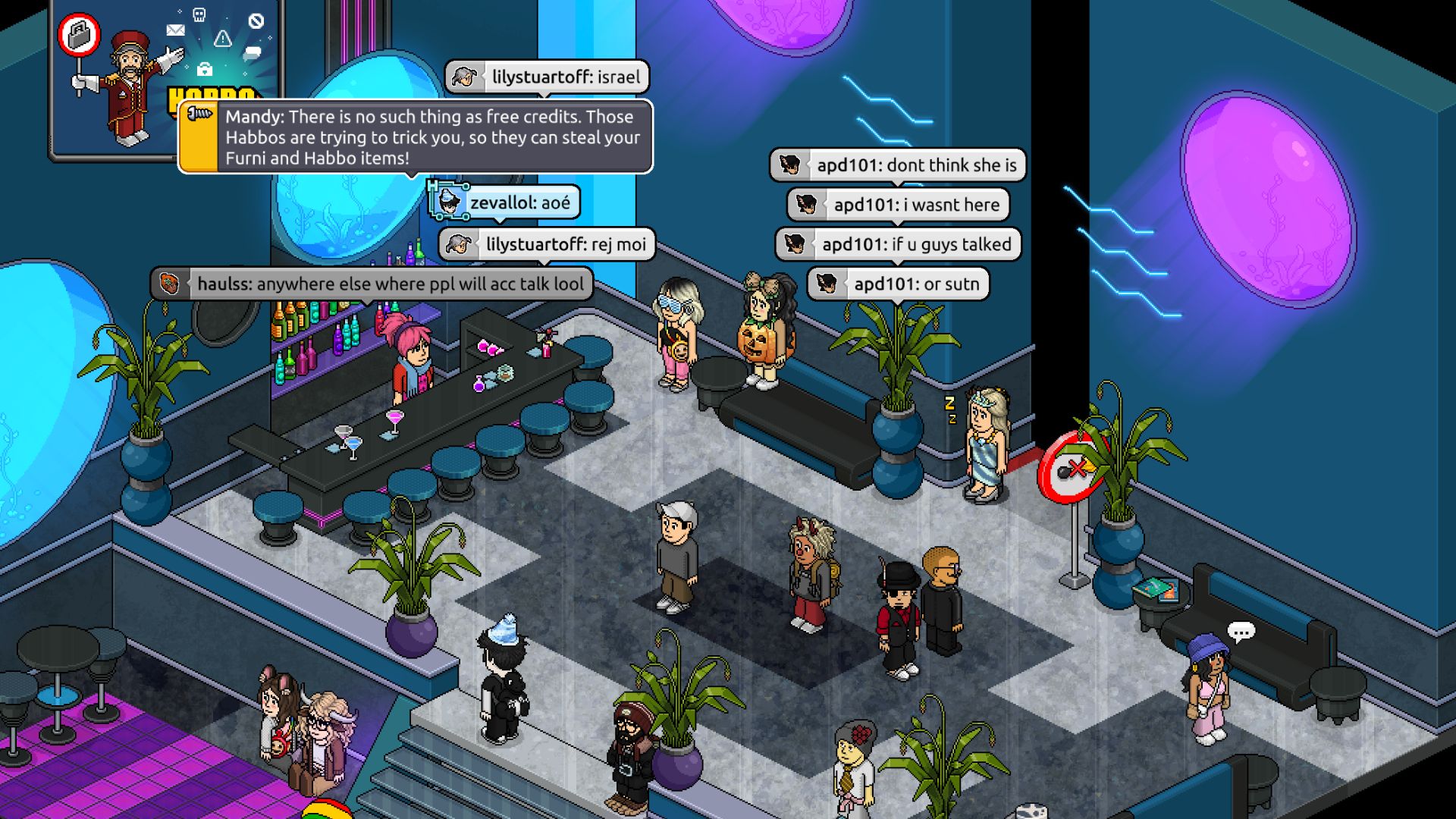Looking to leave Twitter? Habbo still exists – and your hotel room is waiting
Continental breakfast not included

Sign up for breaking news, reviews, opinion, top tech deals, and more.
You are now subscribed
Your newsletter sign-up was successful
Social platform Mastodon might be the early winner from the exodus of disgruntled Twitter users fleeing the platform in the wake of Elon Musk taking over, but it’s unlikely to be the only one. With a Twitter-sized hole now emerging in many users’ social media footprint, any competitor in the world of social media could prove a beneficiary.
For some, the answer to this new vacuum may not be found by moving to a new platform, but returning to an old one.
If you were born between the mid-1980s to mid-1990s, chances are you’re familiar with the name Habbo Hotel. But just in case you aren’t, here’s a quick rundown.
Peaking in popularity during the middle part of the 2000s, Habbo Hotel is a pixel art virtual world and social 'game' offering users the opportunity to build their own virtual characters and engage with other users from around the world in any number of designated rooms – or stick to the central hubs, referred to as 'hotels'.
While designing and building characters and/or rooms is fun, Habbo Hotel’s primary appeal has always been its social elements – offering literal rooms in which internet users can gather alongside friends and strangers alike in this virtual world.
Essentially, a lot of what Mark Zuckerberg and Meta are trying to do with the metaverse, by creating a virtual community hub populated by representations of ourselves, was first pioneered by what’s on offer in Habbo Hotel (now operating as simply Habbo).
In fact, Habbo Hotel was so far ahead of its time that for many people, it would become their very first experience in the then-burgeoning world of social media. Even before MySpace’s Tom had entered into the lives of internet teens and tweens, many had cut their social media teeth in Habbo’s world.
Sign up for breaking news, reviews, opinion, top tech deals, and more.
With nostalgia as a huge selling point for many people, it seems reasonable that Habbo would be considered a legitimate Twitter alternative and see renewed life, right? To answer this question, I thought I’d go out on a journalistic limb and dive back into the world of Habbo to see if it still holds up.

Departing Twitter and checking in to the Hotel Habbo
Accessing Habbo’s platform and opening your free account is certainly easy enough, marginally more so than the process for Mastodon at least. Still, the ease of this process might be where the appeal for Habbo among its competitors begins and ends.
Entering my avatar into the Habbo world, my first stop was a public nightclub room – the obvious choice considering this room held one of the bigger crowds in attendance for the whole platform. My innocent brain, failing to consider the lessons I should have learned from my adult life, thinks going where the people are is the most logical place to start.
Sadly, it’s not long before I realise that my experience in this virtual nightclub is virtually indistinguishable from my experiences in the nightclubs of the real world.
As I stand in the center of a dance floor, awkwardly waiting for someone to talk to as I timidly type out greetings into the void, small handfuls of interesting characters bounce in and out of the club around me.
Meanwhile, a group of 2-3 avatars stand against a back wall arguing among themselves about some kind of love triangle drama. Whoever Isobel is, I learn, she is both a “lying b*tch” and “an angel”, but also keeping her hands full with two or more equally talkative suitors. Good for you, Isobel!
But it’s during this time, awkwardly standing alone in the middle of a pixel art dance floor, that I realise why Habbo isn’t likely to be getting an influx of Twitter-fleeing users anytime soon.
First of all, the Habbo Hotel isn’t getting a whole lot of check-ins. The most populated of Habbo’s rooms – including the nightclub – appear to generally top out at 40-50 people. Within the rooms, the users who are there appear entirely disinterested in engaging with anyone they don’t already know (or maybe they just didn’t like my cool pixel art baseball cap).
As I mentioned earlier, Habbo’s nightclub isn’t all that different to the average experience in any nightclub outside of Habbo. If you’re going into such a club alone, the likelihood is that you’re probably a bit of a weirdo… or a journalist.
What’s missing from the Habbo experience is a sense of catharsis, which is what many people use social media for in the first place. Whether it’s Twitter, Facebook, Instagram or new contender Mastodon, all offer opportunities to tangibly vent your innermost thoughts – either to gain a response or simply exist in the digital world.
Whether you’re screaming into the void or reaching out to someone specific, for many of us, releasing your thoughts into the world can trigger a sense of cathartic joy and a pleasurable boost of endorphins. This feeling might be short-lived depending on what you’ve said, who you’ve said it to, and who responds (or who doesn’t), but the joy exists nonetheless.
Unless you’re mingling with a pre-existing social group in its world, the experience of speaking into the void of Habbo lacks this joy. Once you’ve spoken, within moments the thought bubble that you’ve typed out into Habbo’s virtual world disappears entirely. There’s a benefit to that, like if you were to say something embarrassing, but for the most part it reinforces an experience of loneliness when using the platform as a social tool.
If nobody responds in the few moments your thoughts exist on the screen, they never will. The worst part of this is being able to see the people around your virtual recreation who are likely to have seen what you’ve said, making you feel it more keenly when they fail to respond. On sites such as Twitter, TikTok and the like, even if you don’t exist within a specific community, you’re able to hold on to the idea that some day you might. On Habbo? Not so.
The Terrible, No Good, Very Bad Social Media Dilemma
Which brings me back to Twitter and its new owner and CEO Elon Musk, and why Musk’s reported vision for the platform falls short. While he might frame his vision for the platform as being a “common digital town square, where a wide range of beliefs can be debated in a healthy manner”, he fails to realise that what the world really needs from social media isn’t actually more debate.
Instead, it needs a social media platform willing to offer it more community. That requires much less of a focus on conflict, which Musk has made a habit of appearing to value most highly, and instead focus much more on the catharsis of communication. In Musk’s defence, this has never been Twitter’s strong suit.
If Twitter were ever a platform where harmonious communion were possible on a large scale, it hasn’t been for quite some time. Many now hope that Twitter alternatives, such as Mastodon, might be different.

James is a senior journalist with the TechRadar Australia team, covering news, analysis and reviews in the worlds of tech and the web with a particular focus on smartphones, TVs and home entertainment, AR/VR, gaming and digital behaviour trends. He has worked for over six years in broadcast, digital and print journalism in Australia and also spent time as a nationally recognised academic specialising in social and digital behaviour trends. In his spare time, he can typically be found bouncing between one of a number of gaming platforms or watching anything horror.